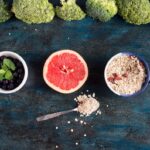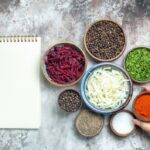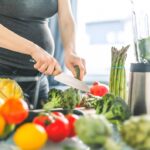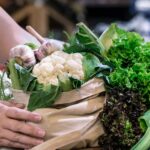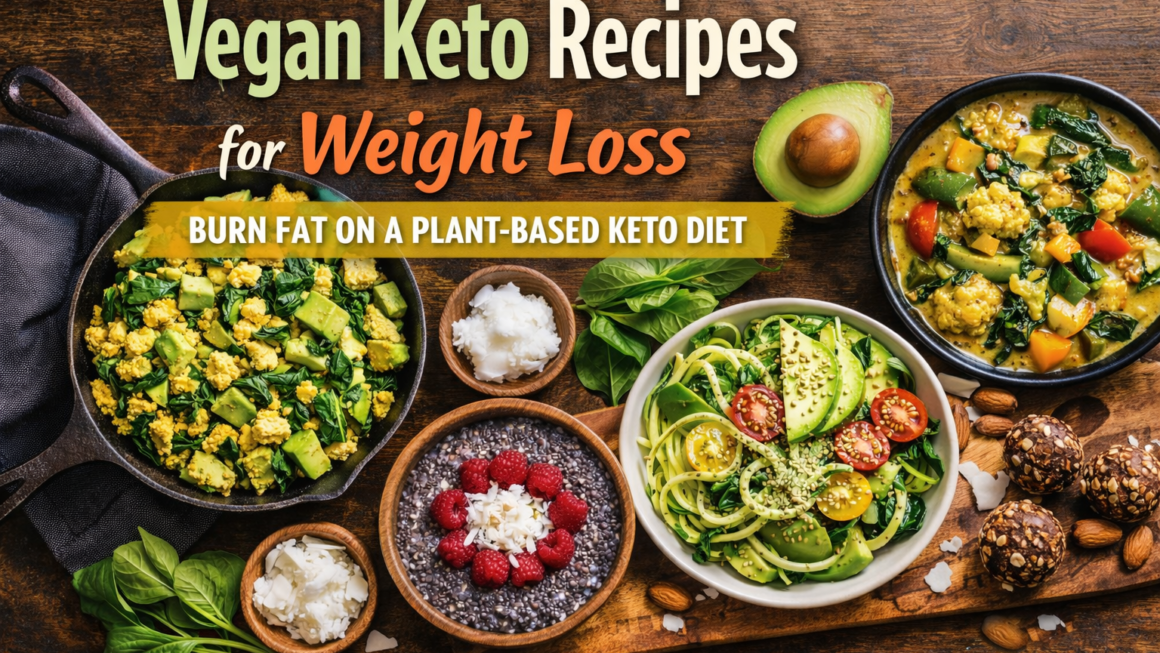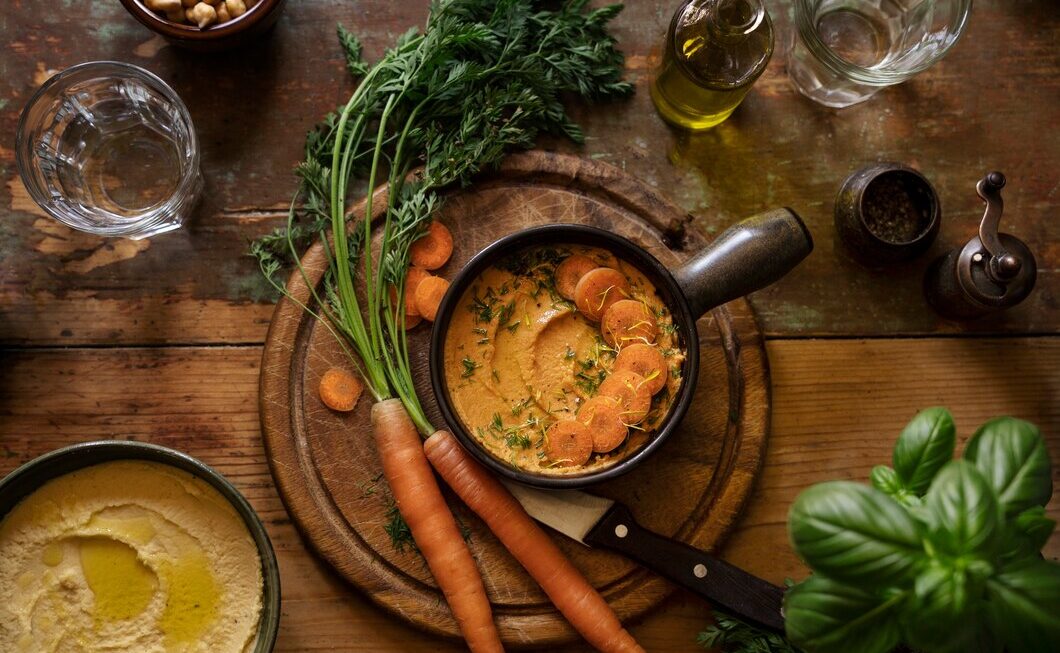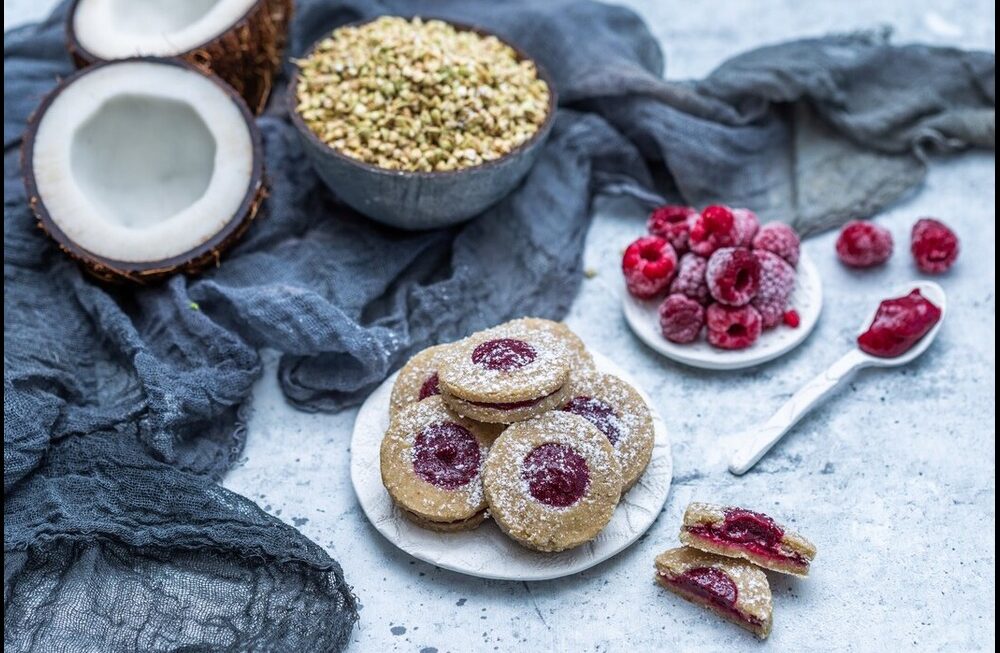Embarking on a vegan journey is exciting, but stepping into the kitchen can sometimes feel overwhelming for newcomers. Where to start? What to cook? How to ensure meals are balanced and delicious? This is where a great vegan cookbook becomes an invaluable guide. Choosing the right one can transform uncertainty into confidence. This analysis delves into must-have vegan cookbooks for beginners, evaluating potential choices not just by their recipes, but through the critical lenses of nutritional guidance, ethical grounding, sustainability awareness, and practical usability – especially important for cooks here in Siyol and across India. Let’s find the perfect companion for your plant-powered kitchen adventures.
Vegan Cookbooks for Beginners: Your Guide to a Delicious Plant-Powered Journey
LENS 1: Nutritional Guidance (Foundation for Health)

For beginners, understanding the nutritional aspects of a vegan diet is often a top priority. A good introductory cookbook should provide more than just recipes; it should offer foundational knowledge.
- Addressing Key Nutrients: Does the cookbook explain how to meet needs for potentially critical nutrients like Vitamin B12 (emphasizing reliable sources like fortified foods or supplements – a non-negotiable), Iron, Calcium, Vitamin D, Iodine, and Omega-3 fatty acids? Look for introductory chapters or sidebars addressing these. Books like “Vegan for Life” by Jack Norris and Virginia Messina, while not solely recipe books, set a high standard for nutritional information that the best cookbooks strive to incorporate.
- Balanced Meal Concepts: Does the book teach how to build balanced meals, ensuring adequate protein, healthy fats, and complex carbohydrates? Or does it just offer isolated recipes without context? Guidance on meal structure is crucial for beginners.
- Whole Foods Emphasis: Does the cookbook prioritize whole, unprocessed ingredients (fruits, vegetables, legumes, whole grains, nuts, seeds) over heavy reliance on processed vegan meats and cheeses? While substitutes have their place, a foundation in whole foods is key for long-term health.
- Clarity and Accuracy: Is the nutritional information presented clearly, accurately, and without making unsubstantiated health claims? Avoid books that promote extreme restrictions or detoxes without scientific backing. Does the cookbook provide confidence that you can meet your nutritional needs while learning delicious recipes?
Nutritional Deep Dive: What to Look for Nutritionally in a Beginner Vegan Cookbook
- B12 Mention: Explicit advice on obtaining Vitamin B12 via supplements or reliably fortified foods is essential. Any book ignoring this is a red flag.
- Key Nutrient Awareness: Mentions sources of Iron (legumes, greens; pairing with Vit C), Calcium (fortified milks, tofu, leafy greens), Omega-3s (flax, chia, walnuts; ideally mentioning algal oil for EPA/DHA), Iodine (iodized salt, seaweed minimally), and Vitamin D (sunlight, fortified foods, supplements).
- Protein Guidance: Discusses getting adequate protein from varied plant sources (legumes, soy, nuts, seeds, grains).
- Balanced Plate Approach: Encourages meals combining different food groups.
- Whole Foods Focus: Recipes primarily based on unprocessed or minimally processed ingredients.
Voice of Experience (Registered Dietitian): “A beginner vegan cookbook should empower, not intimidate. Nutritionally, I look for books that clearly address B12 supplementation, guide readers towards balanced meals with diverse plant proteins, and emphasize whole foods. It should build confidence that a vegan diet can be both delicious and nutritionally complete.” – Sunita Kashyap, RD

LENS 2: Ethical Framework (Values in Print)

Cookbooks can do more than teach recipes; they can reinforce the values driving the choice to go vegan and offer guidance on navigating the world compassionately.
- Articulating the ‘Why’: Does the author share their motivations (animal welfare, environment, health) in an inspiring yet relatable way? Connecting the ‘what’ (recipes) to the ‘why’ can strengthen a beginner’s resolve.
- Tone & Inclusivity: Is the tone welcoming, encouraging, and non-judgmental? Beginners appreciate support, not dogma. Books that celebrate food and compassion without being preachy are often most effective.
- Ethical Sourcing Guidance: Does the cookbook mention or encourage considering the ethics behind ingredients beyond just being vegan? This might include Fair Trade chocolate, sugar, coffee, vanilla, or discussing sustainable palm oil options. While not always central, awareness is valuable. Some high-quality cookbooks mention specific ethical brands.
- Cultural Sensitivity: Does the book respectfully address adapting traditional (perhaps Indian) dishes or navigating social situations and family meals where food is central? Offering gentle guidance on sharing vegan food positively is helpful. Does the cookbook’s message resonate with your personal reasons for exploring veganism?
Hidden Benefits: Reinforcing Commitment
A cookbook that thoughtfully integrates ethical considerations can serve as a daily reminder of one’s values, making the cooking process more meaningful and reinforcing the commitment to a vegan lifestyle, especially during the initial transition phase.
Voice of Experience (Vegan Author & Advocate): “A truly helpful vegan cookbook for beginners doesn’t just list ingredients; it weaves in the ‘heart’ of veganism. It should feel like a friendly guide, celebrating compassionate choices and making delicious, ethical eating feel accessible and joyful, not like a burden.” – Rohan Kapoor, Author of “Plant-Powered India” (hypothetical title)
Critical Reassessment: Avoiding Preachiness & Acknowledging Context
The ethical messaging should be inspiring, not guilt-inducing. It’s also important that cookbooks acknowledge the varying accessibility and cost of ethically certified ingredients, especially in diverse contexts like India, promoting awareness without creating barriers.
LENS 3: Ingredient Science & Environment (Sustainable Kitchen Skills)

Good beginner cookbooks often demystify vegan cooking by explaining basic ingredient functions and promoting sustainable practices.
- Explaining the ‘How’: Do recipes explain why certain techniques or substitutes work? For example, why soak cashews for creaminess, how a flax egg binds, or the role of acid with baking soda? Understanding the basics builds cooking intuition.
- Seasonal & Local Focus: Does the cookbook encourage using seasonal produce? While international cookbooks might have different seasonal charts, the principle is valuable. Look for mentions of using local markets or adapting recipes based on availability – crucial for cooks in Rajasthan using winter greens (palak, sarson, methi) or summer mangoes. Books like “Local Bounty” champion this approach.
- Minimizing Food Waste: Are there tips on storing produce, using vegetable scraps (for broth), repurposing leftovers, or flexible recipes that allow ingredient swaps based on what’s on hand?
- Lower-Impact Ingredients: Does the book naturally favour staples with lower environmental footprints, like lentils, beans, local grains (bajra, jowar), and seasonal vegetables, over excessive use of imported, water-intensive, or heavily packaged ingredients? Comparing the impact of different plant milks (oat/soy often lower than almond) might be mentioned. Does the cookbook empower you to cook more sustainably and resourcefully?
Market Transformation Map Suggestion: A timeline showing the increase in cookbooks published with themes like “Seasonal Vegan,” “Zero Waste Kitchen,” or “Local Eating” over the past decade.
Voice of Experience (Sustainable Cooking Educator): “Empowering beginners means teaching them how to cook flexibly and sustainably. Great cookbooks explain techniques, encourage using seasonal and local produce – whatever that means in their region – and offer tips to reduce waste. It’s about building skills for a lifetime of conscious cooking.” – Chef Meera Iyer, “Green Kitchen Workshops”
LENS 4: Everyday Practitioner’s Experience (Usability & Recipes)

Ultimately, a beginner cookbook must be practical, accessible, and inspiring in the kitchen.
- Clarity & Simplicity: Are the recipe instructions clear, concise, and easy to follow for someone new to cooking or vegan concepts? Are cooking terms explained? Look for authors known for clarity, like Isa Chandra Moskowitz (“Isa Does It,” “I Can Cook Vegan”) or Dreena Burton (“Dreena’s Kind Kitchen”).
- Ingredient Accessibility (India Context): Are the majority of ingredients easily found in local Indian markets or standard grocery stores? Does the book offer sensible substitutions for less common items? Relying heavily on obscure imported products makes a cookbook impractical for many beginners in places like Siyol. Cookbooks by Indian authors like Richa Hingle (“Vegan Richa’s Indian Kitchen”) or Sonal Ved (“The Indian Vegan”) naturally excel here.
- Visual Guidance: Are there helpful photographs of the finished dishes, or even step-by-step photos for techniques? Visuals greatly aid beginners.
- Foundational Support: Does the book include essential beginner info like a guide to stocking a vegan pantry, recommended basic kitchen equipment, or explanations of fundamental cooking techniques (chopping, sautéing)?
- Recipe Variety & Range: Does it offer a good mix of meal types (breakfast, lunch, dinner, snacks, maybe simple desserts)? Does it include quick weeknight options alongside some slightly more involved weekend projects?
- Cultural Relevance: For Indian beginners, does the cookbook include familiar flavours and dishes, perhaps veganized versions of Indian classics (Dal Makhani, Palak ‘Paneer’ with tofu, Vegetable Korma)? Does it utilize common Indian cooking methods (like pressure cooking)? Does this cookbook make you feel excited and capable of cooking delicious vegan food regularly?
Checklist: What Makes a Great Beginner Vegan Cookbook?
- Clear, easy-to-follow recipes
- Accessible ingredients (with substitution suggestions)
- Good photographs
- Basic nutritional guidance (esp. B12)
- Welcoming, encouraging tone
- Pantry stocking/equipment guide
- Variety of simple meal types
- (Bonus) Seasonal/sustainable cooking tips
- (Bonus) Culturally relevant recipes (e.g., Indian)
Voice of Experience (New Vegan Cook): “The cookbook that helped me most had really clear steps, photos for almost every recipe, and used ingredients I could actually find at my local shop here in Jaipur. It also had a section explaining things like nutritional yeast and flax eggs, which was super helpful at the start!” – Priya Sharma, Student
Alternative Approaches: Different Focus Areas
Beginner cookbooks vary: some focus on speed (“30-Minute Vegan”), budget (“Plant-Based on a Budget”), specific appliances (Instant Pot), whole foods exclusively, or particular cuisines. Consider what aspect is most important for your starting point.
PERSPECTIVE INTERSECTION MATRIX
- Nutrition & Usability (Lens 1 & 4): Crucial nutritional information (Lens 1) must be presented in an easy-to-understand and actionable format within the cookbook’s structure (Lens 4).
- Ethics & Practicality (Lens 2 & 4): Ethical motivations (Lens 2) are sustained when cookbooks provide practical, delicious recipes (Lens 4) that make compassionate eating enjoyable and feasible.
- Environment & Recipes (Lens 3 & 4): Promoting sustainable practices like seasonal eating (Lens 3) is most effective when linked to appealing, practical recipes using those ingredients (Lens 4).
- Science & Technique (Lens 3 & 4): Explaining the ‘why’ behind techniques (Lens 3) empowers beginners (Lens 4) to cook more intuitively and successfully troubleshoot recipes.
- Usability & All Perspectives (Lens 4 & 1/2/3): The overall practicality and user-friendliness (Lens 4) determine how effectively the nutritional, ethical, and sustainable messages and information (Lens 1, 2, 3) are received and implemented by the beginner cook.
MISCONCEPTION ANALYSIS
| Misconception | Reality |
| Vegan cooking requires advanced culinary skills. | Many vegan cookbooks for beginners specifically focus on simple techniques, quick meals, and foundational recipes accessible to novice cooks. Look for titles emphasizing ease or speed. |
| Vegan food made from cookbooks will be bland or boring. | Good cookbooks teach flavour building using herbs, spices (abundant in Indian cooking!), sauces, acidity, and umami-rich ingredients. They showcase the incredible diversity and taste potential of plant-based ingredients. |
| You need lots of expensive, hard-to-find specialty vegan products. | While some recipes might use them, core vegan cooking relies on affordable staples: lentils, beans, grains, seasonal vegetables, fruits, nuts, seeds, and spices – many readily available in India. Good books offer substitutions. |
| Online blogs and videos have made physical cookbooks obsolete. | While online resources are plentiful, well-curated cookbooks offer reliability (tested recipes), structured learning, cohesive guidance, beautiful photography, and a screen-free experience that many still value. |
| All vegan cookbooks are nutritionally sound. | Quality varies. Some focus only on recipes without addressing nutritional balance or key nutrients like B12. It’s important to choose books that offer at least basic, responsible nutritional guidance for beginners. |
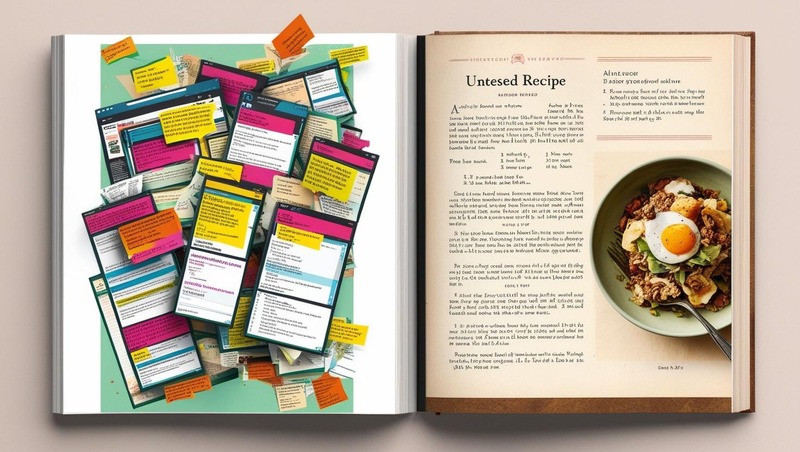
KEY TURNING POINTS
- Pioneering Authors: Early authors like Isa Chandra Moskowitz and Dreena Burton published accessible, appealing vegan cookbooks that demystified the cuisine for a wider audience.
- Rise of Food Blogging: Many popular vegan bloggers (like Richa Hingle of Vegan Richa) translated their online success into high-quality, trusted cookbooks.
- Publisher Investment: Increased mainstream interest led major publishers to invest in producing well-designed, thoroughly tested, and widely distributed vegan cookbooks.
- Niche Specialization: Cookbooks emerged focusing on specific needs: quick meals, budget cooking, families, specific cuisines (including excellent Indian vegan cookbooks), baking, Instant Pot, etc.
- Focus on Health & Whole Foods: More cookbooks emphasizing unprocessed ingredients and providing solid nutritional information alongside recipes.
SYNTHESIS & RECOMMENDATIONS
Navigating the start of a vegan cooking journey is made infinitely easier and more enjoyable with the right guidebook. The best vegan cookbooks for beginners serve as trusted companions, offering not just recipes, but also foundational knowledge and inspiration. When choosing, look beyond just the pictures; consider how well the book supports your health with nutritional guidance (especially B12 awareness), resonates with your values through its tone and ethical considerations, empowers you with sustainable kitchen skills, and, crucially, offers clear, practical recipes using ingredients accessible to you (considering the Indian context). A thoughtfully chosen cookbook can build confidence, expand your culinary horizons, and make your transition to delicious plant-powered eating a resounding success.
Recommendations for Choosing a Cookbook:
- Assess Your Needs: Are you a complete novice cook? Need quick meals? Focused on Indian cuisine? Prioritizing health? Choose a book that matches your primary goal.
- Check for Foundational Info: Look for introductory chapters on vegan nutrition (B12!), pantry stocking, basic techniques, and ingredient explanations.
- Browse Recipe Clarity & Ingredients: Flip through sample pages (online or in-store). Are recipes clear? Do ingredients seem reasonably accessible in your area (e.g., common Indian vegetables, lentils, spices)? Are substitutions offered?
- Consider the Author’s Philosophy: Does the author’s tone (welcoming, humorous, straightforward, health-focused, ethically driven) resonate with you?
- Look at Reviews (Critically): Check reviews from other beginners, paying attention to comments on recipe reliability and ease of use.
- Don’t Overlook Local Authors: Explore cookbooks by Indian vegan authors (like Richa Hingle, Sonal Ved) for recipes naturally suited to local tastes and ingredient availability.
FURTHER AREAS OF EXPLORATION
- Top Vegan Cookbooks Specifically for Indian Cuisine
- Vegan Cookbooks Focusing on Budget-Friendly Meals
- Best Cookbooks for Quick & Easy Vegan Weeknight Dinners
- Comparing Popular Vegan Food Blogs vs. Cookbooks
- Vegan Cookbooks for People with Allergies (Gluten-Free, Nut-Free)
- Cookbooks That Teach Foundational Vegan Cooking Techniques
